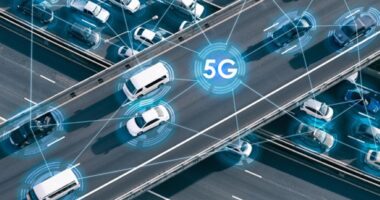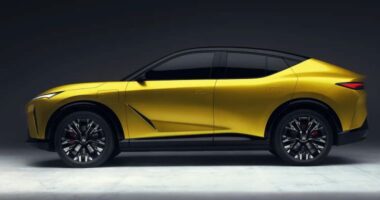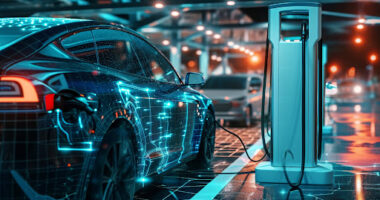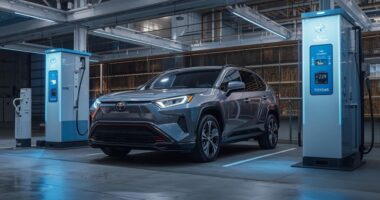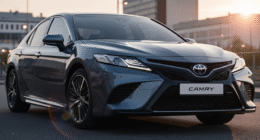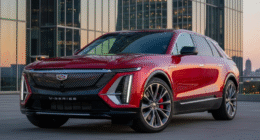The automotive industry is rapidly shifting toward sustainability, performance, and cutting-edge technology. Among the global leaders driving this transformation, Toyota continues to set benchmarks in innovation. In 2025, Toyota is introducing next-generation engine technology that promises to blend efficiency, eco-friendliness, and powerful performance like never before.
This breakthrough is not just about new hardware—it represents Toyota’s long-term vision for carbon neutrality, hybrid evolution, and advanced electrification. Let’s take a closer look at Toyota’s 2025 engine innovation and how it is shaping the future of mobility.
Toyota’s Legacy of Engine Excellence
For decades, Toyota has been known for reliable and fuel-efficient engines, powering popular models like the Corolla, Camry, and Prius. Toyota was also a pioneer in hybrid technology, with the Prius leading the global adoption of eco-friendly vehicles.
Now, with stricter emission standards, growing EV competition, and rising consumer demand for sustainable vehicles, Toyota is moving into a new era of engine innovation.
What Makes the 2025 Toyota Engine Different?
Toyota’s 2025 engine innovation combines advanced combustion technology, hybrid integration, and electrification support. Unlike traditional internal combustion engines (ICE), these future-ready engines are designed to:
-
Deliver higher fuel efficiency without sacrificing performance.
-
Reduce carbon emissions dramatically through optimized combustion.
-
Support multiple fuel types, including biofuels and synthetic fuels.
-
Work seamlessly with hybrid and electric powertrains.
This approach ensures that Toyota engines remain versatile and adaptable to different markets while aligning with global carbon reduction goals.
Focus on Carbon Neutrality
One of Toyota’s boldest commitments is achieving carbon neutrality by 2050. The 2025 engine lineup is a major step toward this goal.
Key Strategies for Carbon-Neutral Engines:
-
Improved fuel combustion that lowers CO₂ output.
-
Integration with hybrid-electric systems, cutting fuel dependency.
-
Alternative fuels compatibility, such as hydrogen and e-fuels.
By combining cleaner engines with renewable fuel sources, Toyota is ensuring that even regions without widespread EV infrastructure can still contribute to sustainable mobility.
Hybrid Synergy: Beyond the Prius
Toyota’s 2025 engines are expected to be smarter and more powerful hybrid systems. Building on the Prius legacy, Toyota plans to expand hybrid integration across its vehicle lineup, from compact cars to SUVs and trucks.
Benefits of Next-Gen Hybrid Engines:
-
Greater efficiency through advanced energy recovery.
-
Smaller, lighter batteries paired with optimized combustion engines.
-
Dynamic performance—delivering instant torque while keeping emissions low.
This synergy will make Toyota’s hybrids more appealing to drivers seeking both eco-friendliness and driving excitement.
Hydrogen-Powered Possibilities
While electric vehicles dominate the headlines, Toyota is also investing heavily in hydrogen technology. The 2025 engine innovation may include hydrogen-compatible combustion engines, which combine the familiarity of traditional engines with the clean-burning properties of hydrogen fuel.
Hydrogen engines can:
-
Produce near-zero emissions, only releasing water vapor.
-
Refuel quickly, unlike long EV charging times.
-
Support heavy-duty vehicles, where EV batteries are less practical.
Toyota’s hydrogen-powered Mirai sedan is already on the road, and the 2025 engine update could expand hydrogen technology into mainstream vehicles.
Smarter Engines with AI and Digital Integration
Another exciting aspect of Toyota’s 2025 innovation is the integration of AI and digital technologies into engine management.
AI-Driven Features Include:
-
Predictive engine control, adjusting performance based on driving habits.
-
Real-time diagnostics, detecting issues before they become costly problems.
-
Seamless connectivity with 5G and cloud platforms for continuous updates.
These intelligent systems make engines not just more efficient but also more reliable and adaptive for long-term use.
Balancing EVs and Future Engines
Toyota has been cautious about going “all-in” on electric vehicles (EVs). Instead, the company is focusing on a balanced strategy:
-
Expanding EV production.
-
Innovating hybrid and hydrogen engines.
-
Advancing clean combustion technology.
This diversified approach ensures Toyota can serve different markets, especially in regions where charging infrastructure is limited. The 2025 engine innovation reflects this philosophy—bridging the gap between today’s ICE vehicles and tomorrow’s fully electric future.
What Consumers Can Expect in 2025
When Toyota’s next-gen engines roll out in 2025, drivers can expect:
-
Better fuel economy, saving money at the pump.
-
Lower emissions, making vehicles eco-friendly.
-
Smooth hybrid integration, with powerful acceleration and quiet driving.
-
Longer engine life due to smarter, AI-powered management.
-
Flexibility in fuel options, including hybrids, EVs, and hydrogen-powered cars.
Whether buying a sedan, SUV, or pickup, customers will see Toyota’s innovation built into every segment.
The Future of Toyota’s Powertrain Strategy
Looking ahead, Toyota’s multi-path strategy includes:
-
Next-gen engines (2025) for hybrids and clean combustion.
-
Hydrogen vehicles for sustainable mobility.
-
Battery-electric vehicles (BEVs) for urban and global markets.
-
Advanced mobility solutions, including autonomous cars with efficient engines.
This layered approach ensures Toyota remains competitive, sustainable, and consumer-focused in the rapidly evolving auto industry.
Conclusion
The future of mobility is here, and Toyota is leading the charge with its 2025 engine innovation. By blending advanced combustion technology, hybrid synergy, hydrogen compatibility, and AI integration, Toyota is creating engines that are powerful, eco-friendly, and future-ready.
As governments tighten emission regulations and consumers demand greener solutions, Toyota’s next-gen engines represent the perfect bridge between today’s vehicles and tomorrow’s fully sustainable transportation.
For drivers, this means better efficiency, cleaner performance, and smarter cars—proof that Toyota’s commitment to innovation is as strong as ever


